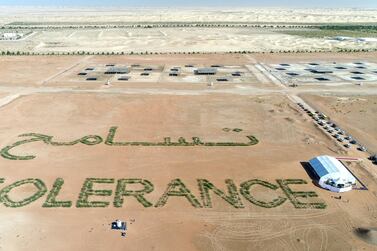I had an extremely busy work period before our National Day last week, and so as the holiday approached, I was fantasising of travelling to my second home, sitting in my beautiful garden overlooking the lake, and planning my projects for next year. I wouldn’t be distracted by friends, or family and I would get a lot done. As I said, it was just a fantasy. I didn’t manage to get through any of my planned projects. My agenda never left my suitcase, and my brain went into a non-cooperative freeze mode. During my break, I slept for more than eight hours per night, and was catching up on my shows on Netflix.
Why did my holiday wear me out when I hadn’t done anything? I was just sitting there doing nothing all day, yet I felt so tired. The problem I realised, wasn’t in my busy work schedule, or lifestyle, but because I had fallen into a cycle of overworking myself the past period, and not taking enough breaks yet again.
Many of us have a certain image of being an entrepreneur in mind, one that involves us “hustling”, working on weekends, and checking our emails at the dinner table. We see tweets and social media posts in the morning motivating us to “rise and grind”. Success often equates to being overworked. We believe that the tougher our schedules are, the tougher we would be, and the more successful we would become. I’ve learnt to discipline myself throughout the years, but I sometimes find myself falling back into a routine that exhausts me. Though to some of my millennial friends, I’m doing so great by working hard and sometimes through the night, I know that all this overworking, will come haunting me back later, leading to less productivity, and negatively affecting my well-being.
In her book The Happiness Track, the science director of the Center for Compassion and Altruism Research and Education at Stanford University, Emma Seppala, states: "Work addiction is rewarded by our culture, and is therefore considered a good thing despite its long-term negative impact on well-being." The World Health Organisation (WHO) even classified burnout as an "occupational phenomenon".
The problem with many of us is that we continue to work even when we are supposed to be on a break. We would be either checking our emails, our work social media feed, or discussing work with friends and family. This is why even when we’re on holiday, we would still feel exhausted.
This bring us to the point that a full recovery is not just about stopping the physical act of working, but to cut all aspects of it, especially the mental one. This means not checking emails, engaging in work conversations, or following work updates on social media.
When I met with British hotelier Sonu Shivdasani, at his Maldives resort Soneva Fushi, he told me that the secret to productivity is to fully disconnect from everything. That is why the island resort had selected Wi-Fi hotspots, no satellite TV, and encouraged its guest to walk barefoot, reading and becoming one with nature. To him, that was what luxury was all about.
If you want to incorporate a constant work recovery mode into your routine, then I would suggest to strategically incorporate it in your daily life, instead of waiting for your next break.
Dedicate strict working hours, and try as much as possible to not exceed those. As a morning person, I would start early, and ensure that I’m done with work late in the afternoon and there would be no talking about work after that. There’s no personal social media time for me when I’m at work, and I would limit my time on social media apps per day. Several apps help you keep track of that. Last but not least, I had to remind myself again that breaks are meant for taking a break, and I shouldn’t be using them to work especially when I have a busy work schedule already.
As for me, I will be spending next weekend doing what I should be doing, and that is absolutely nothing work-related.
Manar Al Hinai is an award-winning Emirati journalist and entrepreneur, who manages her marketing and communications company in Abu Dhabi







